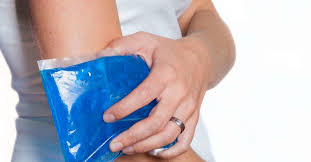Content of the Article
Most people at some point in their life skin rash lived. Skin rashesThere are many types of. Rashes can be caused by an allergen or an irritant food, clothing or household chemicals. Medications, poor digestion or disease states skin rasheswhat could cause.
"What is skin rash", "what are the symptoms and causes of skin rash", "is there any herbal solution for skin rashes that can be done at home?" Answers to all these questions and skin rashes on the body You can find what you need to know about in the article.
Skin Rash Symptoms
Skin rashis a change that affects the color, appearance, or texture of the skin. Debrisis defined as an area of skin that is irritated or swollen. The medical word for this dermatitisTruck. An itchy rash allergic contact dermatitis is called.
All over the body rashes may occur. Sometimes it is regional, at other times it can spread to every part of the body.
Skin rasheshas a wide variety of symptoms and characteristics. Skin rashes on the skinThe signs of are as follows:
Red or discolored skin
- Raised, red stripes
Red or colorless spots
Red or colorless bumps
Annular blisters
Itching
- A lacy and slightly raised patch of skin
Haze-filled, crusty bumps
Scaly or flaky skin
Thick and leathery skin
Types of Skin Rashes
Many people who can explain and identify the cause of the change in the skin's appearance. type of rash has. For example, the most common skin rashesSome of them are:
Contact dermatitis
Seborrheic dermatitis (dandruff)
Diaper rash
Poison ivy
Measles
Rash
Stress rash
Rose disease
Hives
Sun rash
Skin Rash Causes and Risk Factors
Generally, rashes It is caused by inflammation of the skin, which can be due to many reasons. One of the most common forms of a rash is contact dermatitis, which occurs when some type of substance irritates the skin.
Contact dermatitis can cause mild redness of the skin or a rash of small red bumps. When a more severe reaction occurs, it can cause swelling, redness, and larger blisters.
Common causes of contact dermatitis and the rashes that occur include:
- Poison ivy
- Soaps, detergents, shampoos, deodorants, perfumes and lotions, especially those with synthetic scents
Household chemicals such as bleach
Hand disinfectants
Latex allergy
Food allergy
Other common causes of rashes:
- viral infection ( herpes zoster)
Fungal infection
Bacterial infection
Parasitic infection (such as scabies)
Acne
Eczema
Rose disease
Lyme disease (often causing a "bull's-eye" rash)
Lupus (usually causes a "butterfly" rash under the eyes and on the cheeks)
Insect bites
Excessive skin friction
- Prolonged exposure to heat (heat rash)
Prolonged exposure to moisture (diaper rash)
Allergy to a drug
Side effects or photosensitivity to a drug
A viral, bacterial, fungal, or parasitic infection carries the risk of developing a rash. Also, the risk of a rash increases if there is a family history of allergies or asthma.
How Are Skin Rashes Treated?
A topical ointment or cream as well as prescription strength corticosteroids such as hydrocortisone skin rashesUsed to treat ni. However, it should be noted that long-term use of corticosteroids is among the side effects of skin thinning.
Home Treatments for Skin Rashes
Skin rashesWhatever the reason, it itches wildly. Doctors prescribe creams, lotions, or antihistamines for relief. There are some natural solutions that can be applied at home against the side effects of these drugs.
Here Natural remedies for skin rashes...
Cold compress
Skin rashOne of the fastest and easiest ways to stop your pain and itching is to apply a cold. Applications with cold water, such as a cold compress or cold shower, provide instant relief and help slow the progression of swelling, itching and redness.
How Is It Applied?
Fill an ice pack or plastic bag with ice or moisten a cloth with cold water.
- Place a washcloth on your skin (never put ice directly on your skin).
Hold on to your skin until itching or pain subsides.
Repeat as needed.
The cold limits blood flow to the inflamed area. When you apply ice or cold water to the rash, it helps reduce swelling and inflammation and stops itching immediately. If the rash or itching covers a large area of the body, a cool bath or shower provides relief.
Aloe vera (fresh)
Aloe vera It is a herb that has been used for centuries in health and skin care. In addition to wound healing, aloe vera also has anti-inflammatory, antimicrobial, antiviral, and antioxidant properties.
How to use?
The clear gel from aloe leaves is used to soothe itchy and irritated skin.
Before using aloe vera, it is necessary to wash and dry the affected area so that you can achieve maximum absorption.
If you have an aloe plant, you can cut the leaf, scrape off the gel and apply it directly to the affected skin. You can also buy the gel. However, it is recommended to use fresh aloe vera as the gel may deteriorate over time and lose its effectiveness.
- If your doctor recommends, you can use two or more aloe vera a day.
Aloe vera contains vitamin B12; calcium; magnesium; zinc; Provides vitamins A, C, E and essential fatty acids. It also contains enzymes, carbohydrates and sterols. Aloe vera gel is safe when applied to the skin, but some may be allergic to it.
Coconut oil
High in saturated fat, antiseptic and anti-inflammatory properties Coconut oil It is a moisturizer used in skin care.
In case of coconut allergy, it should be tested on the inner arm first. If there is no reaction within 24 hours, it is safe to use. Do not use if irritation develops.
How to use?
- Coconut oil can be used safely on the skin and scalp as a moisturizer. It can be applied to the whole body or just to itchy areas.
Unprocessed coconut oil is best because it retains its antioxidant and antimicrobial properties.
The medium-chain fatty acids in pure coconut oil have antibacterial, antiviral, anti-inflammatory and healing properties.
A monoglyceride composed of lauric acid in coconut oil has been found to be antibacterial. Lauric acid accounts for about half of the fat content of coconut oil.
Some studies have also found that it reduces the severity of dermatitis and promotes wound healing.
Tea tree oil
Tea tree ( Melaleuca alternifolia ) is native to Australia, where it was originally used by indigenous people as an antiseptic and anti-inflammatory. It is an essential oil that is steam distilled from the plant.
Tea tree oilIts antimicrobial properties make it an effective treatment for skin conditions such as acne.
How to use?
- If tea tree oil is to be used directly on the skin, it should always be diluted. You can dilute it by mixing it with a few drops of coconut oil or other oils such as olive oil. Or mix it with your moisturizer.
- Use on the affected area after bathing or showering.
You can also find commercial products that contain tea tree oil, such as shampoos and foot creams.
Tea tree oil should not be drunk because it is toxic. Some people may be allergic to it.
Tea tree oil is effective against bacterial, viral, fungal and protozoal infections on the skin. Tea tree oil is powerful and can be irritated if it comes into contact with the skin without diluting it in a cream or oil.
Carbonate
Baking soda (sodium bicarbonate) rashes, such as poison ivy or insect bites itchy skin rashes It is an old method used for.
How to use?
You can make a paste with some water and baking soda and apply it on the affected area.
The chemical structure of carbonate acts as a buffer, keeping solutions in a stable acid-alkaline balance. Therefore, it balances the pH of the skin by relaxing the skin.
Apple cider vinegar
Apple cider vinegar It is a medicine that has been used for centuries for skin and other ailments. It has antimicrobial properties.
How to use?
You can use apple cider vinegar diluted several times a week for an itchy scalp. However, do not use it if your scalp is injured or bleeding.
Some people experience relief in their skin when they take a bath with apple cider vinegar.
A 2018 study analyzed how apple cider vinegar affects bacteria that cause widespread inflammation. E. coli, S. aureus ve C. albicans .
The study found that, in laboratory cultures, apple cider vinegar was extremely effective in limiting inflammation-producing cytokines.
Epsom salt (or Dead Sea salt)
Epsom salt (magnesium sulfate) is traditionally used in a hot bath to soothe muscle pains. Soaking the area of the rash in Epsom salt or Dead Sea salt rich in magnesium and minerals also helps relieve itching.
How to use?
Add 2 cups of Epsom salt or Dead Sea salt to a hot tub. (For children, consult your doctor about the amount.)
Soak in water for 15 minutes.
Then rinse, dry and use a moisturizer.
Magnesium salts have been found to improve skin barrier function, help skin retain moisture and reduce inflammation.
Vegetable oils
Many different plant oils can be used effectively to moisturize itchy skin. Generally, oils reduce inflammation, creating a protective skin barrier.
Olive oil
This oil is known to reduce inflammation and aid wound healing. Oleic acid and smaller amounts of other fatty acids as well as 200 different chemical compounds.
Safflower seed
Safflower seed oil, which is an anti-inflammatory, is 70 percent polyunsaturated fat linoleic acidconsists of. Two of its components showed anti-inflammatory properties: luteolin and glucopyranoside.
Argan oil
Studies show that with daily use, this oil improves skin elasticity and moisturization. It consists mostly of monounsaturated fatty acids and includes polyphenols, tocopherols, sterols, squalene and triterpene alcohols. It also softens the skin.
Jojoba oil
Jojoba oil, an anti-inflammatory that helps repair the skin barrier in dermatitis, is found in many cosmetics. It helps absorb topical medications.
Chamomile oil
Chamomile oil has three components (azulene, bisabolol, and farnesene) that produce anti-inflammatory or antihistamine effects when used topically.













